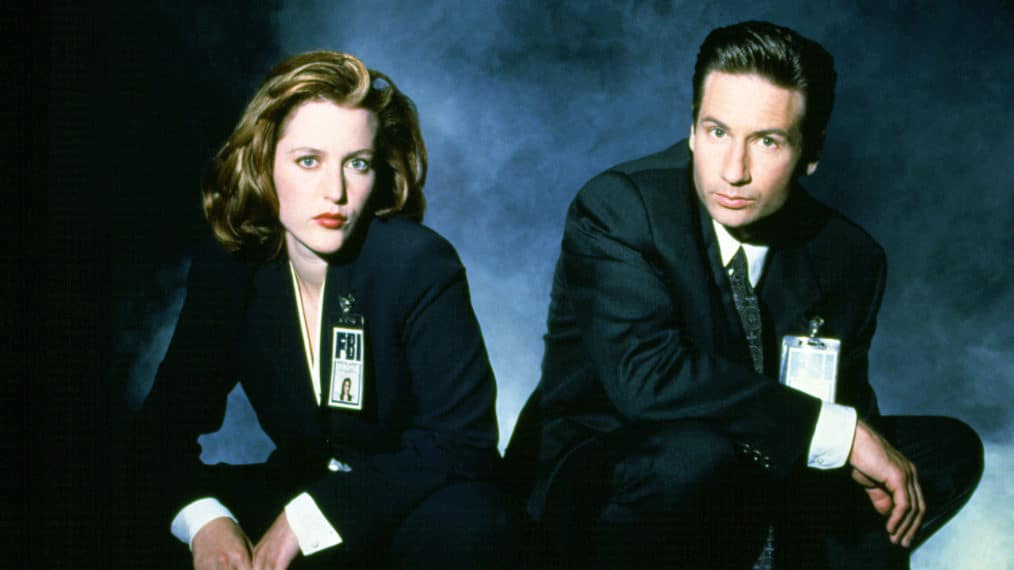30 years after it first aired, the show has left a legacy says
On September 10, 1993 the pilot episode of The X-Files aired. Thirty years later to the day, I was at a convention centre in Minneapolis with 500 other fans and the show’s creator, Chris Carter, celebrating its legacy.
Ostensibly a show about aliens, The X-Files swiftly became part of the cultural lexicon and remains there to this day. In part its success was down to the chemistry of its two leads – David Duchovny, who played FBI Special Agent Fox Mulder and Gillian Anderson, who played FBI Special Agent Dana Scully. After all, it was the X-Files fandom that invented the term “shipping” (rooting for characters to get together romantically).
But, as I argue in my new book, The Truth Is Still Out There: Thirty Years of The X-Files, what really made the series successful was its ability to tap into contemporary cultural moments and ask us to really think about the times we’re living in.
When the series began in 1993, the US was still grappling with the effects of Watergate and the Vietnam war, but concerns were also rising about the approaching millennium and the economic and cultural divisions within US society. It also coincided with Bill Clinton becoming president – marking the end of more than a decade of Republican leadership.
It’s little surprise that fears about immigration, globalisation, national identity and technology emerged and were adopted – and sometimes foreshadowed – by The X-Files’ writers. Several episodes throughout the first nine seasons dealt with artificial technology, for example, and Eve, an episode in season one about clones, came four years before the birth of Dolly the Sheep.
Critical theorist Douglas Kellner argued in 1994 that The X-Files “generated distrust toward established authority, representing institutions of government and the established order as highly flawed, even complicit in the worst crimes and evil imaginable”. Though I’d argue it was less that the show generated this distrust and more that it leveraged the growing number of reports about the government’s secretive activities to inspire its storylines.
As the public became more aware of the government’s role in – and surveillance of – public life, so too The X-Files considered the ways in which technology could be used as a means of control.
During my X-Files research, carried out with viewers after a revival was announced in 2015, it became clear that the show has remained part of the cultural lexicon. As one fan explained: “The cultural context of conspiracy theories has changed since the beginning of X-Files. Nowadays, every pseudoscience documentary uses similar soundtrack and narrative.”
Of course, The X-Files didn’t invent conspiracy theories, but as one of the show’s writers and producers, Jim Wong, points out, it did “tap into something that was more or less hidden in the beginning when we were doing it”.
The focus on the rise of the alt-right, disinformation and fake news in seasons 10 and 11 seemed like a logical angle from which to approach the changing cultural context the revival came into.
Season 10 saw the introduction of a right-wing internet talk show host who argues that 9/11 was a “false flag operation” and that the mainstream liberal media lie to Americans about life, liberty and the right to bear arms. The parallels to conspiracy theorists like Alex Jones and Glenn Beck were obvious.
While The X-Files’ search for the truth in the 1990s may have ultimately been a philosophical endeavour, in the 21st century it is a commentary on how emotion and belief can be more influential than objective facts.
Watching the show again while researching my book, I was struck by how it was dated predominantly by its lack of technology, rather than the ideas it expresses. In the second season episode Ascension, Mulder pulls a phone book off a shelf in his search for Scully – now we’d use Google. But in other aspects the show remains as relevant today as it was in the 1990s, encouraging us to think about the big questions relating to faith, authority and truth.
Research Associate, University of York. This article is republished from The Conversation under a Creative Commons licence







Click here to change your cookie preferences